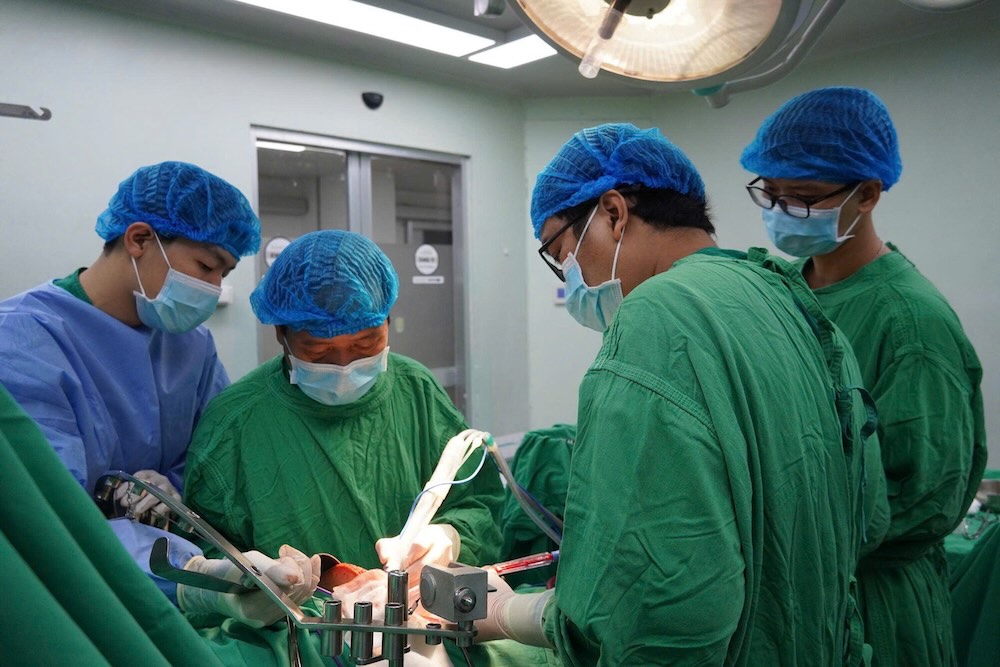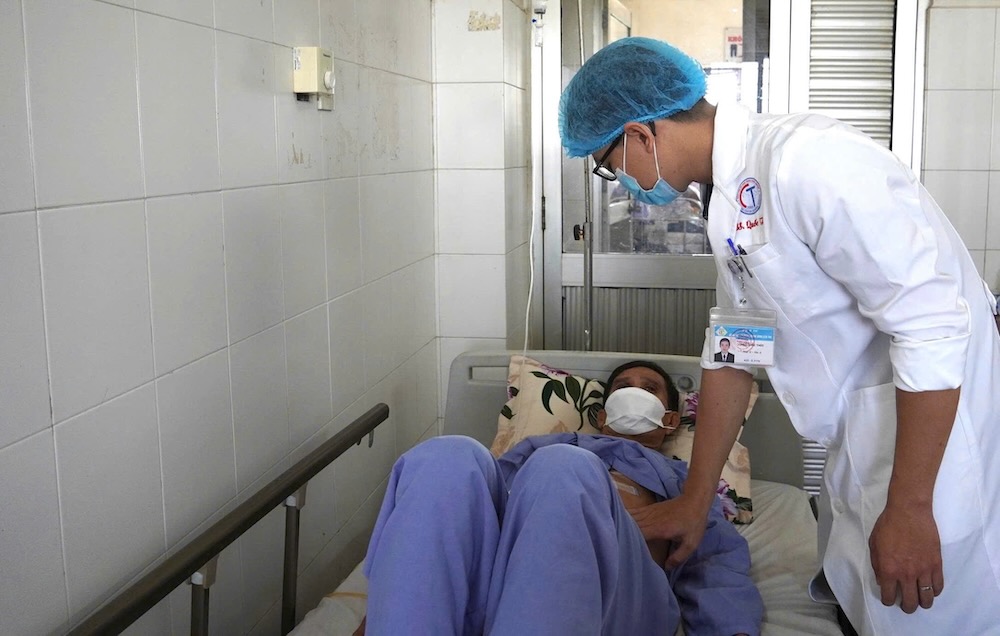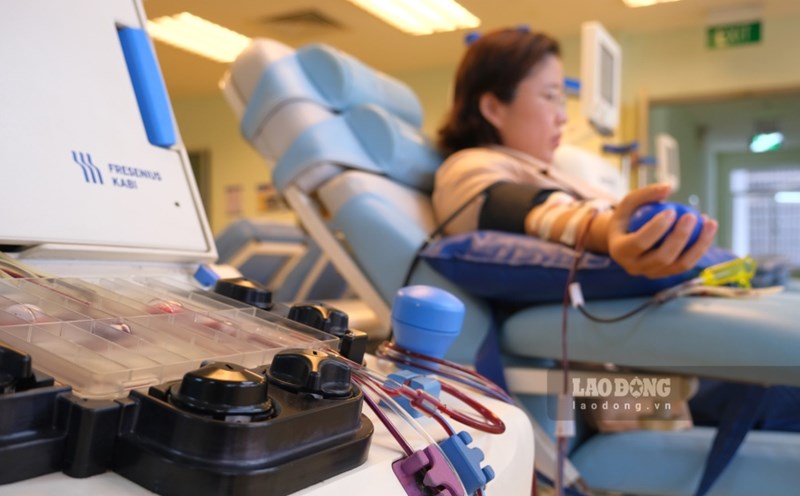First case
The successful implementation of the CUSA ultrasound surgical knife ( Cavitron Ultrasonic Surgical Aspirator) in liver surgery for cancer patients marked the first time this technology has been applied in the Mekong Delta region.
Accordingly, on July 21, a male patient (57 years old, Can Tho City) was transferred from a local medical facility to Can Tho Central General Hospital (CGS). The patient was diagnosed with liver cell carcinoma measuring 64x67 mm, with residential liver in the right lower border IIIVIII.
After a multi-specialty consultation, the patient was indicated for major surgery on the right liver by using a CUSA ultrasound surgical knife to support liver tissue separation. The surgery was performed safely, with little blood loss and no significant complications.

Doctor CK2 Nguyen Khac Nam, Deputy Head of the General Surgery Department of the Hospital - informed that currently, liver cutting is still considered a treatment for terminal liver cancer, with a 5-year lifespan after surgery of about 60.8% - 74%. However, liver removal is a complex surgery due to difficulties in determining the boundaries of the pathology and bleeding.
Recently, thanks to the effective support of the CUSA ultrasound surgical knife, the cavitron effect helps detect and preserve gallstones, especially small blood vessels and gallstones in the liver. Maximizing the preservation of gialloccharides also helps preserve good liver tissue, limiting complications of liver failure after surgery, controlling the area of liver removal well to ensure the safe liver removal to limit recurrence.
With outstanding advantages such as high accuracy in clearly distinguishing between healthy tissue and healthy tissue, optimizing the removal of tumors and preserving the liver to the fullest, reducing blood loss due to the ability to stop blood on the spot, reducing the risk of bleeding, this is a particularly important factor in complex liver surgery, causing less damage to large blood vessels and gallbladder, reducing the risk of gallstones or bleeding after surgery.
CUSA ultrasound knife not only helps shorten the surgery time by synchronously integrating tissue breakdown, fluid suction and blood holding functions, but also shows clear effectiveness in improving surgical efficiency.
This device has a diverse scope of application, and is effectively used in many specialized surgeries such as: liver central cancer mass cutting, gallbladder cancer in the liver or in the liver navel, liver transplantation from the liver user... In particular, the device is very suitable for less invasive endoscopic surgeries.

Completing the treatment of multiple sclerosis in liver cancer
liver cancer is one of the common malignant diseases with a high mortality rate in Vietnam. To build a personalized treatment regimen to achieve optimal efficiency for patients, Can Tho Mekong Delta Hospital has coordinated with multi-modal treatment in liver cancer to be implemented synchronously, professionally and is increasingly improving.
Each liver cancer patient is approached through a multidisciplinary consultation. Depending on the stage of the disease, the physical condition and characteristics of the tumor, the patient will be prescribed one or a combination of treatments such as: liver surgery, 120-ounce urticaria incineration or microwaving, chemical blockage, whole-body chemotherapy and gentle treatment.
Close coordination between specialties not only helps optimize treatment outcomes, but also contributes to prolonging life and improving the quality of life for people with liver cancer.
Stepping forward in the roadmap for liver transplant preparation in the Mekong Delta
Nationwide, there are currently only about 40 CUSA ultrasound surgical knife systems equipped at central hospitals. Putting this system into operation at Can Tho General Hospital helps improve the professional capacity of liver and giarr surgery in the area, thereby reducing the burden on the above facilities.
In the hospital's in-depth development strategy, mastering the CUSA ultrasound knife system is considered an important step in the preparation roadmap for liver transplant surgery. This is one of the key goals in the Mekong Delta from 2026.











